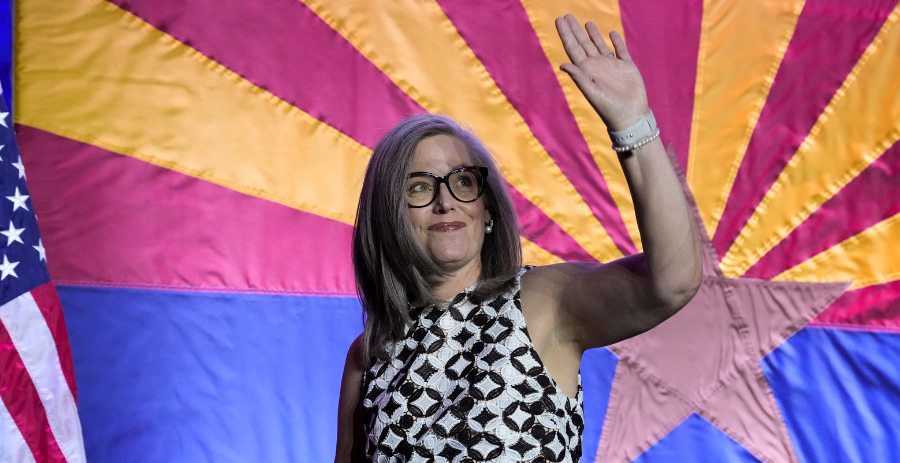Fashion
Gov. Hobbs Poised to Break Veto Record Amidst GOP Bills on the Horizon

Governor Katie Hobbs is on track to set a new record for the number of bills vetoed in a single year in Arizona. Despite criticism, she insists the high veto count is a result of the poor quality of legislation presented by Republican lawmakers.
Hobbs claims that many rejected bills—ranging from education reforms to food stamp regulations—lack genuine solutions to real problems. She pointedly stated that if Republicans cease introducing poorly conceived legislation, her veto stamp would be less frequently used.
“I have made it clear that I’m not going to sign legislation that is a solution in search of a problem,” Hobbs said, emphasizing her commitment to protecting individual freedoms.
With lawmakers returning from their break, the expectation is that the approval of additional GOP-backed measures will resume, likely leading to further vetoes. Proposed legislation includes changes to election laws and income tax cuts, all of which Hobbs has indicated she will likely oppose.
As of now, the governor has vetoed 138 bills, just five short of her first-year total. This accomplishment has drawn ire from House Republicans, who accuse her of obstructing effective bipartisan policies.
“Gov. Hobbs has made vetoing good policy her full-time job,” criticized Andrew Wilder, spokesman for House Speaker Steve Montenegro. “Instead of governing, she’s cementing a record as an ineffective obstructionist.”
Some vetoed bills enjoyed bipartisan support, indicating that not all rejections were strictly partisan. One notable example involved parental access to minor children’s medical records. Hobbs raised concerns about the potential legal ambiguities for healthcare providers regarding patient privacy.
Despite some Democrat-backed bills being rejected, the majority originating from GOP sources reflect key policy issues. For instance, Hobbs dismissed a proposal to impose strict employment requirements for food stamp recipients, advocating instead for existing voluntary programs aimed at job training.
Moreover, she took issue with a mandate for Medicaid to provide links to adoption resources, expressing concerns about infringing on reproductive freedoms. The governor’s challenges also included contentious issues like whether to allow concealed carry on college campuses.
Addressing the situation, Hobbs noted her bill rejections have often stemmed from redundancy, stating that many proposals were resubmitted multiple times within a single session.
Legislation aimed at restricting students’ name and pronoun usage in schools also drew her veto. Similarly, proposals reinforcing the portrayal of the Gulf of Mexico as the Gulf of America were categorized as politically motivated rather than substantive legislative efforts.
On essential policies such as immigration, Hobbs acknowledged the need for balance, stating current measures should focus on addressing vital issues like securing the border and public safety.
Senate President Warren Petersen’s proposed legislation aimed at enhancing law enforcement cooperation with federal immigration officials was vetoed, which he characterized as disrespecting the voters concerned about border issues.
Despite friction, Hobbs remains hopeful for future collaboration with the Republican majority, reiterating her commitment to working for the betterment of Arizonans.


















